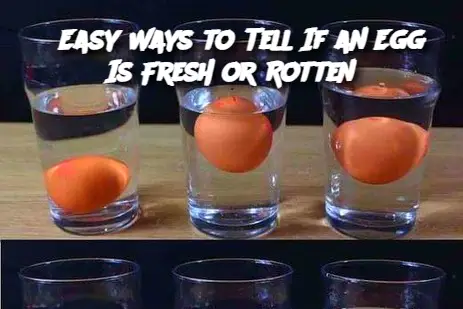Hard Boiled Eggs: If you’re unsure of an egg’s freshness, try boiling it. Fresh eggs are much easier to peel when hard-boiled, while older eggs tend to have a more difficult-to-peel shell due to the increased size of the air pocket.
Eggs for Baking: If you’re using eggs for baking and the egg isn’t quite fresh, you can still use it, but the quality of the baked goods may be affected. Always try to use the freshest eggs possible for recipes like soufflés or meringues.
Frequently Asked Questions:
Can I eat eggs after the expiration date? It depends on the egg’s condition. Eggs can still be safe to eat a week or two after the expiration date if they pass the freshness tests, but you should always check carefully before using them.
Can eggs go bad in the fridge? Yes, eggs can go bad if they are stored improperly or kept for too long. While refrigeration slows down the aging process, eggs do have a shelf life and will eventually spoil.
Why do eggs float when they’re bad? The air pocket inside the egg increases as it ages. This is because moisture and air gradually enter the egg through the porous shell, causing it to float in water. Floating eggs are a sign that they’re no longer fresh.
By following these simple methods, you can always be sure that your eggs are fresh, safe, and ready to use in your favorite recipes!

